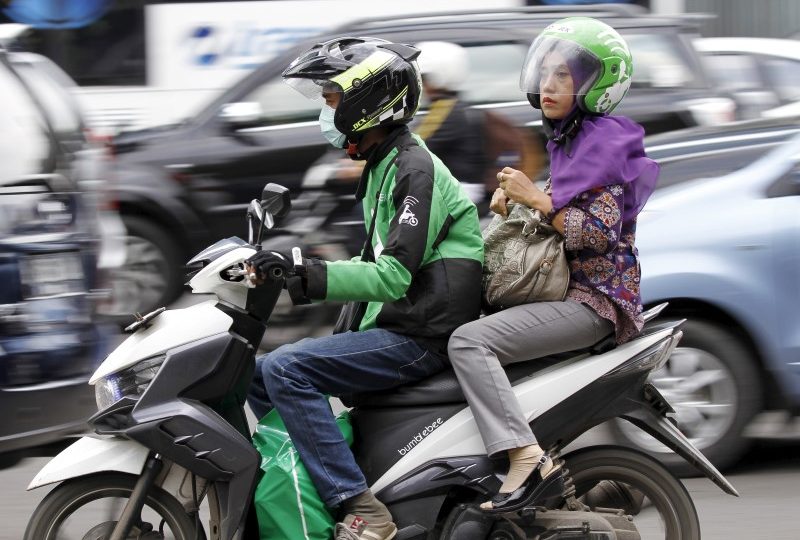The Indonesian government yesterday ordered a moratorium preventing ride-sharing apps in Indonesia from hiring new drivers after regulators deemed there was an excess of partner drivers working for the likes of Go-Jek, Grab, and Uber in the country.
According to data from the Transportation Ministry, one unspecified ride-sharing company in Indonesia has as many as 175,000 registered drivers, with up to 9,000 new hires in three weeks. That is much higher than the limit of 36,510 drivers per company that the ministry set last year.
“It’s bad for [the drivers], because there are too many drivers, the competition becomes more fierce, getting orders will be even more difficult. If that happens, what can they expect to earn?” said Transportation Minister Budi Karya Sumadi, as quoted by Kontan yesterday.
Budi added that the moratorium is temporary in nature, but its end date has not yet been determined by the government.
Ride-sharing companies have fared well in Indonesia, particularly homegrown Go-Jek and Singapore-based Grab. Go-Jek is eyeing an IPO after raising a higher than targeted US$1.5 billion recently from investors including Google, while Grab looks set to acquire Uber’s Southeast Asia operations as it continues to dominate the regional market.
The ride-hailing companies have not yet given public statements regarding the government order.
The Transportation Ministry has tried to introduce restrictive regulations on ride-sharing companies in the past in order to “level the playing field” with so-called conventional forms of public transportation like taxis. However, one such regulation was overturned by the Constitutional Court last year who determined that restrictions violate the principle of a free, democratic market, only for the government to then introduce a new set of revised, slightly less restrictive regulations this year.





Reader Interactions